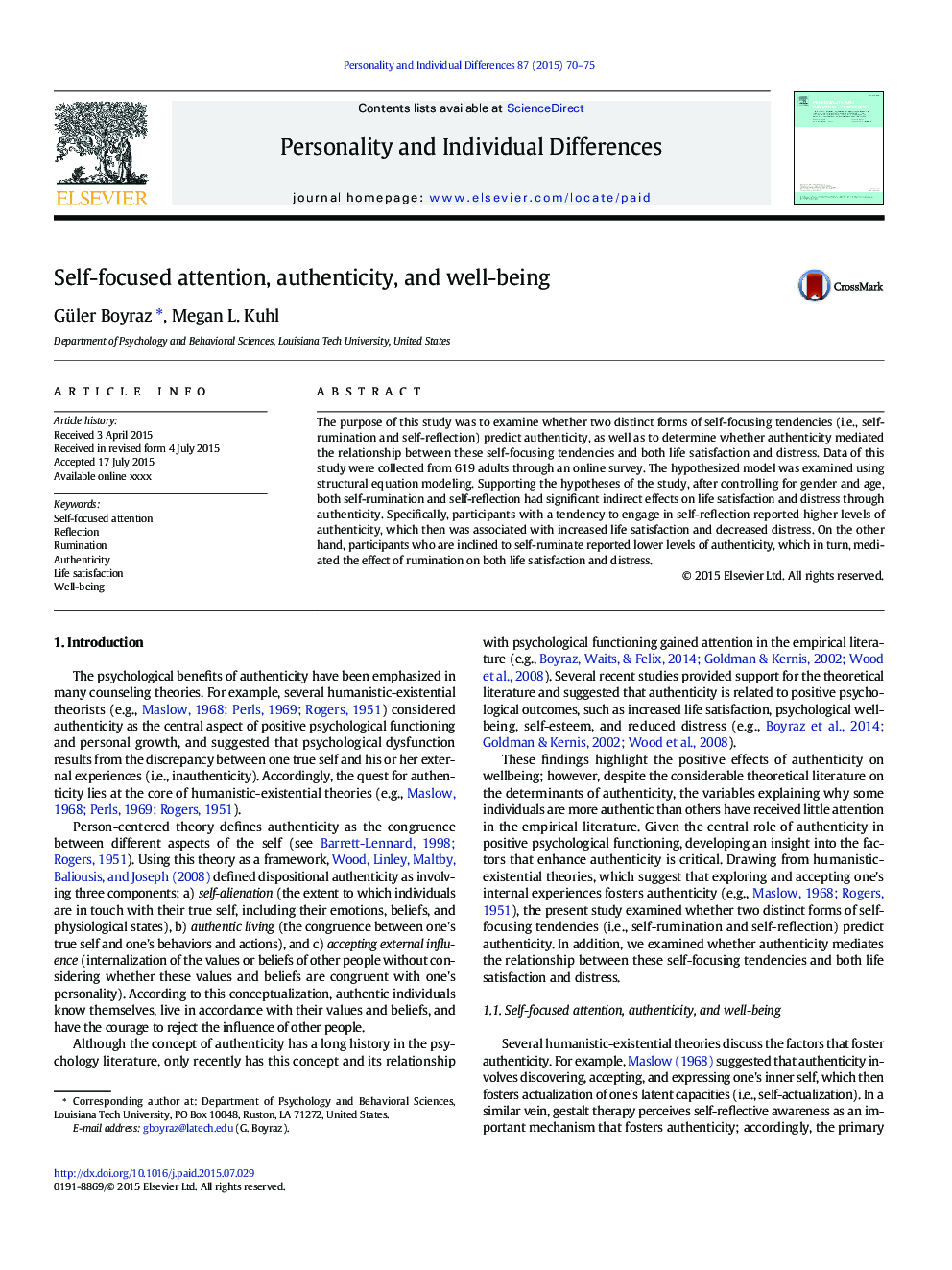| Article ID | Journal | Published Year | Pages | File Type |
|---|---|---|---|---|
| 7250909 | Personality and Individual Differences | 2015 | 6 Pages |
Abstract
The purpose of this study was to examine whether two distinct forms of self-focusing tendencies (i.e., self-rumination and self-reflection) predict authenticity, as well as to determine whether authenticity mediated the relationship between these self-focusing tendencies and both life satisfaction and distress. Data of this study were collected from 619 adults through an online survey. The hypothesized model was examined using structural equation modeling. Supporting the hypotheses of the study, after controlling for gender and age, both self-rumination and self-reflection had significant indirect effects on life satisfaction and distress through authenticity. Specifically, participants with a tendency to engage in self-reflection reported higher levels of authenticity, which then was associated with increased life satisfaction and decreased distress. On the other hand, participants who are inclined to self-ruminate reported lower levels of authenticity, which in turn, mediated the effect of rumination on both life satisfaction and distress.
Related Topics
Life Sciences
Neuroscience
Behavioral Neuroscience
Authors
Güler Boyraz, Megan L. Kuhl,
